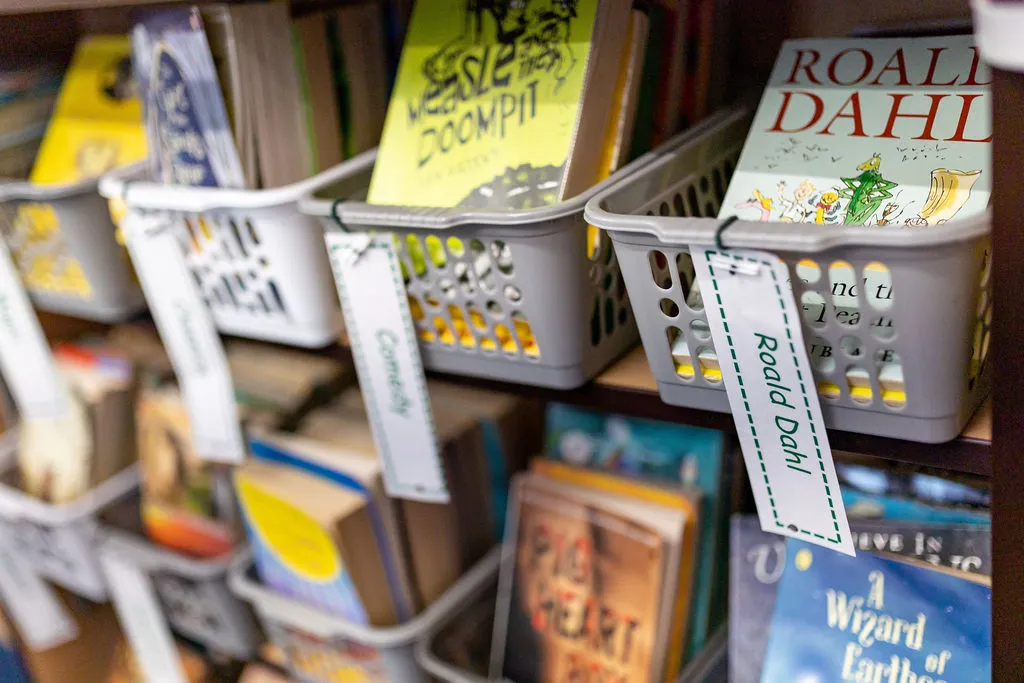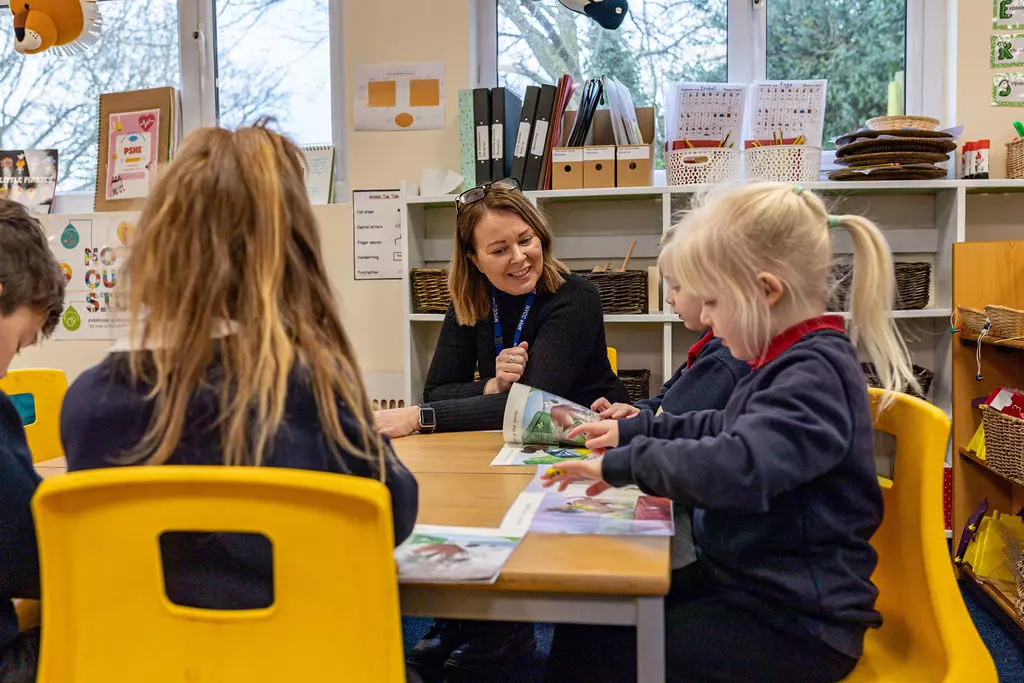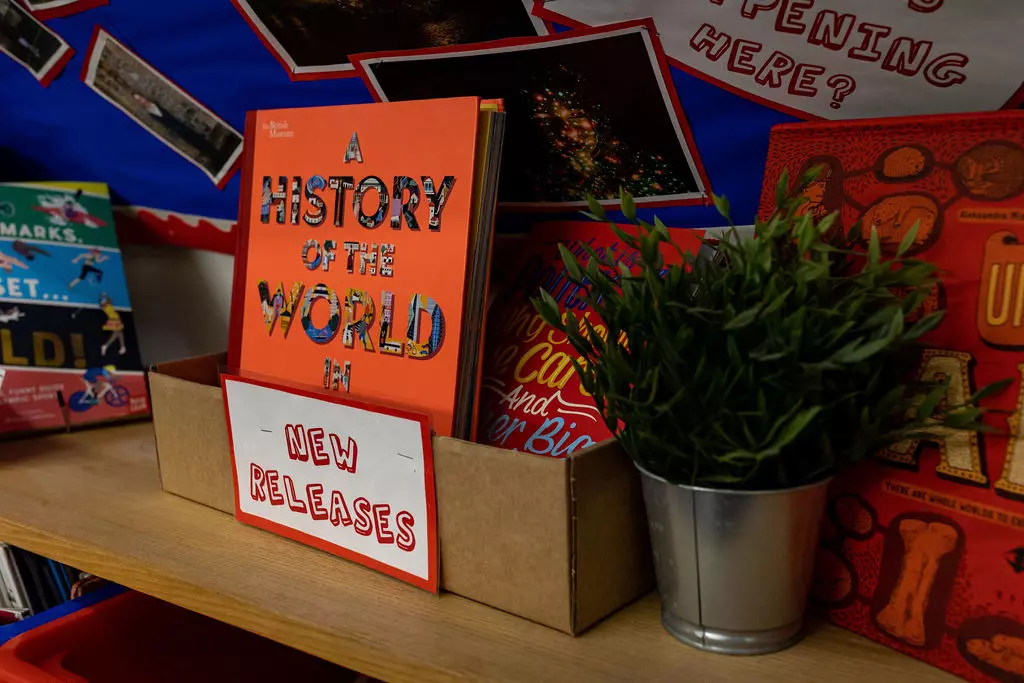Reading is at the heart of all we do – a key curriculum driver within our school vision is ‘We Are Lifelong Readers’. In addition to this, our ‘36 before Year 6’ enrichment opportunities ensure children will visit a library, meet an author and perform poetry off-by-heart before leaving us in Year 6. The importance of reading is recognised and celebrated and, as the key to unlocking the rest of the academic curriculum, underpins much of what we do in school. Developing a culture where reading is at the forefront of our day-to-day teaching is established from day one in Reception and consistently developed through to the end of Key Stage 2 with opportunities for children to enjoy listening to story time daily and regularly ‘read for pleasure’ (both individually and with others). As reading engagement is strongly correlated with reading performance in an academic sense, we strive to make reading as enjoyable and purposeful as possible to ensure no child is left ‘disengaged’ with reading; our children’s passion for reading is evident in school and is something we intend to build upon.
Verbal discussions based around a text are recognised as key to unlocking understanding and engagement and this is a key factor in our approach to teaching comprehension skills. Once a text has been digested and understood, with the children provided with the opportunity to question and share their thoughts, then written comprehension skills can be developed. By the end of Key Stage Two, we intend for our children to be fluent and passionate readers, whilst also being equipped with the skills to apply this passion to enhance their understanding across the curriculum.
We have a variety of strategies to enable children to become lifelong readers.
- Reading sessions take place 3 times a week in Reception and Year 1 in line with our SSP Little Wandle.
- Whole class reading sessions 4 times per week from Year 2 – Year 6.
- Timetabled daily story times in each class, so children can listen to their teacher and practise fluency and reading prosody.
- Daily ‘silent reading’ time to provide opportunities to immerse themselves in a book from their class library.
- Weekly ‘Reading For Pleasure’ sessions, exploring and discussing books with their ppers as well as giving recommendations
- Book corners in each classroom which are full of age-appropriate texts, recommended reads, and books from high quality authors.
- Regular opportunities for pupils to read individually to adults within school.
- Use of ‘Reading Spines’ and ‘Recommended Reads’ to ensure pupils have access to a range of high-quality texts from a variety of genres.
- Celebrating and encouraging a love of reading with plentiful opportunities to share and discuss what they have read.
- Access to books and texts at break-times including our ‘Lifelong Readers’ curriculum aims shed.
- Opportunity to give a book review during Celebration Assembly.
- A focus on texts which showcase inclusivity and diversity, which is key in our small village school.
- Celebration of ‘World Book Week’ with exciting and engaging activities throughout the entire week to celebrate a love of reading.
- Given pupil’s ownership of the development of reading through ‘Reading Ambassadors’.
- Termly ‘Reading Newsletters’ which share recommendations, book reviews etc.
- Children take part in ‘Reading Buddies’ as part of our ‘Big Read’ where they read with a peer from a different year group.
- Termly opportunities for parents/carers to come into school for our ‘Big Read’ where they can enjoy reading based activities with their children.
- Author visits and author webchats.
- Children who are not yet fluent readers by KS2 are given a daily ‘Rapid Reader’ intervention
- A new, high-quality range of individual reading books which are matched to each child’s ability.
- We have a subscription to ‘Weekly News’ to enable children to read about current events in an age-appropriate way.
- A ‘Reading Raffle’ to encourage and reward children for demonstrating their love of reading at home.
In Reception and Year 1, children follow the Little Wandle Phonics Scheme. From Year 2 to Year 6, children are explicitly taught the skills of reading (outlined in the National Curriculum and the KS1 and KS2 test domains) using a bespoke sequence of lessons throughout the week. Children will begin by exploring key vocabulary before the teacher reads aloud the week’s focus text, modelling prosody and highlighting the key vocabulary as discussed. Throughout the rest of the week, children will use a range of strategies to read the text, including ‘echo reading’, ‘paired reading’ and finally ‘independent reading’ to ensure they have the opportunity to develop their fluency on a regular basis. Each session will have some follow-up comprehension questions, using the VIPERS scheme to help scaffold questions, particularly focussing on retrieval, vocabulary and inference skills. Reading Comprehension sessions are taught four days a a week from Year 2 but reading is also promoted across the curriculum, as we aim to inspire children to read as Historians etc.
At the beginning of the week, a new text will be introduced to the children which will be the focus for their comprehension lessons for that week. Teachers are encouraged to select from fiction, non-fiction and poetry texts whilst also ensuring children are exposed to examples of ‘classic texts’ as well. As research suggests that children must be able to understand between 95-98% of the vocabulary to fully access a piece of text, children will be explicitly taught the new vocabulary before reading the text to ensure they are familiar with any new or ‘tricky’ words. This new vocabulary will be revisited throughout the week to ensure they are embedded and applied in various ways, helping to build understanding and oracy.
Subsequent lessons throughout the week will follow a consistent structure and will provide the children with the opportunity to develop their fluency, prosody and comprehension skills. Following the first session, where the teacher models reding the text, children will use ‘echo reading’ whereby the teacher models reading aloud and the children echo it back. The children will then read the text aloud with a partner the next day before finally reading independently on the final day once they have been exposed to the text several times. Each session will include some comprehension questions, focussing predominantly on retrieval, vocabulary and inference questions.
High-quality texts are selected as the basis for each week, ensuring a wide range of text types and genres are used across each class, including ‘classic texts’ and poetry. In order to develop high-quality written responses, a range of strategies are encouraged and applied. Children may initially speak their answers orally, recognising their first idea may not be their best. Sentence stems, key vocabulary and structures for more developed responses may be provided where appropriate to ensure each child is able to access and achieve. Answers should be discussed at the end of each lesson so that children are aware of how well they are achieving in reading sessions. We recognise the impact COVID-19 has had on reading and also that those children who fail to read early start to dislike reading as they grow; we therefore have a robust assessment procedure in place to ensure children are able to ‘keep-up’ rather than ‘catch-up’.
Additionally, children are encouraged to read as…(Historians, Scientists etc) in each curriculum subject and we have invested heavily in a curriculum spine for each subject, ensuring high-quality texts are available to the children, in line with their current learning for that unit of work.
By the time children leave Hunton & Arrathorne they are competent readers who can recommend books to their peers, have a thirst for reading a range of genres including poetry, and participate in discussions about books, including evaluating an author’s use of language and the impact this can have on the reader. They can also read books to enhance their knowledge and understanding of all subjects on the curriculum and communicate their research to a wider audience. Primarily, they develop a love of reading and establish themselves as ‘Lifelong Readers’.
We encourage children to orally talk through their answers and ensure it is the best they can give before writing anything down. We also acknowledge it is good for children to also be able to formally record an answer. Children can do this in a variety of different ways such as discussing the answer first with peers and/or an adult and then being provided with the opportunity to develop their best response in writing. All skills must be modelled by the teacher and children should have a clear picture of how well they are doing in reading with answers discussed, edited, and improved each lesson.
During this reading session teachers focus on specific children during the session, this may mean hearing them read individually whilst others are reading independently, in pairs or groups, discussing answers with those children and working one to one or within a group with them during a session whilst the others form an answer independently. Teachers can then assess these children based on NC expectations and how they are performing relating to the specific content domain.


